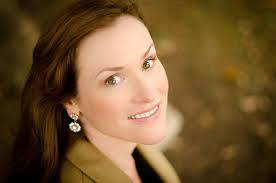
ON the eve of Remembrance Sunday, there could be no more perfect choice of repertory than A German Requiem, Brahms’ non-liturgical memorial to the dead. It was given in the original German to the composer’s own piano-duet version, alongside a short unaccompanied new work commissioned from Lillie Harris.
Like so many performers during lockdown, Chapter House Choir under Benjamin Morris has struggled to stay together and survive. So this was a test of its mettle, as well as being the first post-lockdown ticketed musical event at York Minster itself.
While it is true that Brahms intended a “human” requiem, he did not mean a humanist one, as implied by the programme note. The two words are not interchangeable. He selected exclusively biblical texts for his work – as did Miss Harris, who used only texts selected by Brahms, understandably but also courageously, given that comparisons were bound to be made between old and new.
Her motet, entitled Comfort, began with a prolonged hum incorporating a three-note motif. At first this seemed to be the link between the five brief sections of text. But like the grass withering, it faded and the tonality became more diffuse, in a manner reminiscent of Eric Whitacre, with a slight loss of focus.

The ending – “so will I comfort you” – resolved beautifully, speaking of a technique capable of offering more challenges than were on offer here. My feeling is that this piece will stand alone well as an introit or anthem but will tend to be overshadowed in the company of a whole requiem, like a tugboat sheltering beside an ocean liner, largely overlooked.
Commercial nous was what drove Brahms to write this four-hands at one piano version of his Requiem, which was quickly demanded after the success of the orchestral original. It makes for a more intimate atmosphere but should not be regarded as a complete replacement.
A smooth line was immediately apparent in the choir, with sopranos pinging their high notes satisfyingly. In ‘For all flesh is as grass’, each return of the opening unison was progressively firmer and the closing fugato appeared in a crisp staccato.

In the first of his two contributions, baritone Alex Ashworth was forthright at the top of his range while sustaining an impressive legato. The mood-change at “the souls of the righteous” was almost jaunty; no reason why not, given Brahms’ positive attitude and keenness to avoid prolonged lugubriousness.
It was in “How lovely are thy dwellings” that it became clear that the pianists, Eleanor Kornas and Polly Sharpe, who were otherwise unfailingly tasteful, needed to come to the fore at moments when the choir was not involved rather than remain in the background. They were not, it should be added, blessed with a piano in ideal shape: it sounded particularly tinny in the upper reaches.
The maternal, consolatory tone that soprano Susan Young found for “You now therefore have sorrow”, suggesting that a silver lining lay round the corner, was just about ideal. She polished it off with a beautifully controlled piano that distilled the very essence of Isaiah’s words of comfort.
If the last trump fell slightly short of sending shivers down the spine and the fugue that followed it lacked clarity because individual entries were not given enough prominence, there was considerable compensation in the finale, ‘Blessed are the dead’, which was clean, confident and comforting. The Chapter House Choir is back and in fine fettle.
Review by Martin Dreyer
